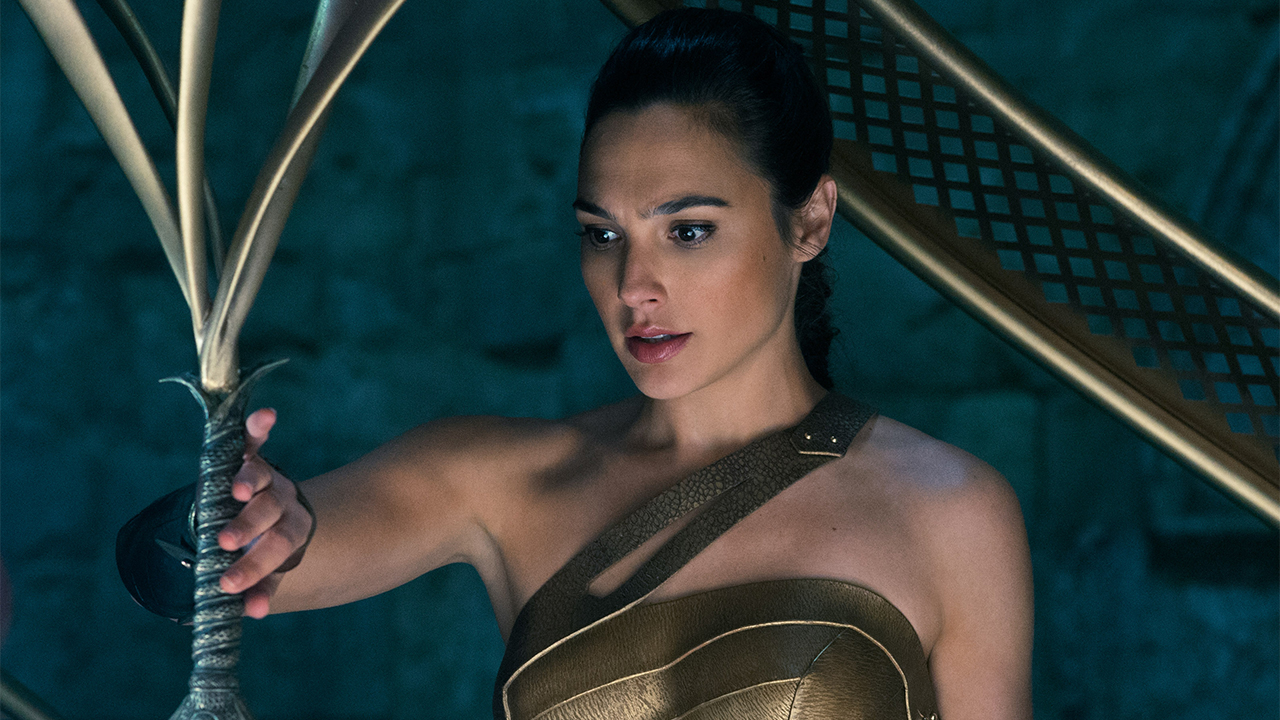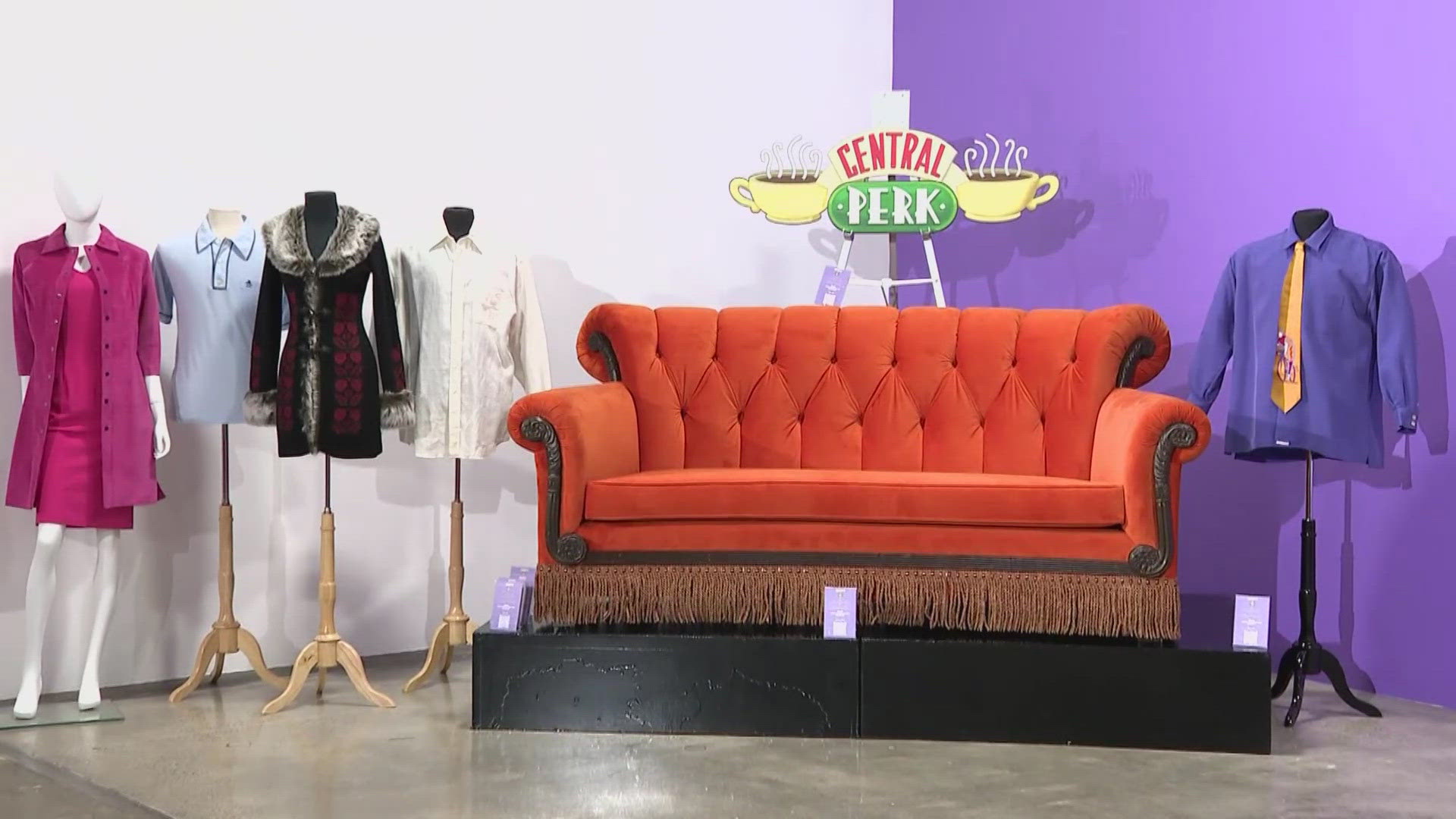Believe it or not, when Wonder Woman arrives in theaters on June 2, it will be the first time the character has fronted her own live-action movie. (Versus Superman's 10 or so different films and even more Batman movies.) And, in fact, the only other time Wonder Woman has appeared on the big screen is Gal Gadot's supporting role in last year's Batman v Superman: Dawn of Justice. All of which is to say, you may have some questions. Like...
How similar is this Wonder Woman to the one in the comic books? Diana, Princess of Themyscira (or Diana Prince, as she's known to mere mortals) first appeared in the pages of All Star Comics #8 in 1941, created by writer William Moulton Marston and artist Harry G. Peter. Everything you know about the Amazonian warrior -- her tiara, her indestructible bracelets, the Lasso of Truth -- remains intact some 75 years later, as do many of the things you maybe didn't know. (Like her origin story, that she is a demigoddess who was sculpted from clay by her mother, Queen Hippolyta, and brought to life by the Greek god, Zeus.)
Who else from the DC Extended Universe is in this? For all intents and purposes, no one. No Superman. No Flash. A majority of the characters in the movie should be familiar to fans of the Wonder Woman comics, though, albeit slightly modified. Doctor Poison (played by Elena Anaya) has long been an adversary of Diana -- a poison specialist whose "Reverso" plotline from the comics is loosely adapted for the screen -- although on page she is also a Japanese princess employed by Villainy, Inc. Then there's Etta Candy (Lucy Davis), who acts as Steve Trevor's secretary here, as opposed to Diana's best friend in print.
As for Steve Trevor, a WWI spy and love interest for Wonder Woman, Chris Pine told ET, "The question for a film like this for me is, 'What is it like to be the damsel in distress? Giggle giggle.' I totally get it. It is funny. You'd never ask Amy Adams that, because it's demeaning, but it's funny to ask someone like me, because I'm a man...It was fun to be objectified for a day. I was thinking this happens to women so, so much, it's about time."
So, no Batman? Do I need to have seen Batman v Superman to understand this? Most of this movie takes place during the First World War, nearly 100 years before the events of BvS. Only the first scene, set in the present day, requires some context: There is a sequence in Dawn of Justice where Bruce Wayne (aka Batman aka Ben Affleck aka Batfleck) and then Diana watch, essentially, a PowerPoint presentation of future Justice League members and future Justice League co-stars. One of the photographs included is of Diana with a squad of men during WWI, and, not to spoil too much, but Bruce mails the original print to Diana at the beginning of this movie, setting this story in motion as we see what led up to the photo being taken. Otherwise, this is a pure origin, no previous watching required.
Is Gal Gadot the first actress to play Wonder Woman? No, although she is only the third to successfully make it to the screen. Actress Cathy Lee Crosby played Wonder Woman in a TV movie in 1974, however, the only previous iteration that truly matters is Lynda Carter's run as Diana in the Wonder Woman television series from 1975. Director Patty Jenkins said that when she got the job, Carter was one of the first calls she made.
"To get her guidance, as the person who has been carrying the mantle of Wonder Woman for all these years and is the one who inspired so many of us to love Wonder Woman," she explained. "I wanted to learn from her. I also wanted her blessing and I wanted her to know we're not here to do the 'new' Wonder Woman. We're here to try to carry forth something so beautiful that she really brought into the world and we just want it to go into the future."
Did Lynda Carter give her blessing? "100 percent," Carter told ET on the set of her latest female superhero project for DC, Supergirl. (She plays the president of the United States on the CW series.) Carter also attended the Wonder Woman premiere, where Gal Gadot joked, "Lynda already thanked me for sharing the burden with her."
"I am the bearer of the torch and now I'm passing it forward to Gal and to Patty. The three of us share some sisterhood by living and breathing this character," Carter herself told ET's Nischelle Turner. "I really want you all to embrace this." (Carter later reviewed the movie as "fabulous.")
Why is this movie such a big deal? Despite the enduring threat of developing "superhero fatigue," the last female-fronted superhero movie was Elektra in 2005. (For reference, that was before the Marvel Cinematic Universe began and there have been 15 of those movies.) Plus, only one comic book movie -- ever -- was directed by a woman, 2008's Punisher: War Zone helmed by Lexi Alexander. Wonder Woman is also the first female-directed feature to have a budget of over $100 million and it will likely become the most successful female-led superhero film, assuming it out-grosses Catwoman's $82 million.
Which bodes well for the female-fronted superhero projects in the pipeline: Marvel Studios has upped Evangeline Lily to a headliner in 2018's Ant-Man and the Wasp, and the following year, Brie Larson will star in Captain Marvel, the MCU's first female-led film, while Sony has reportedly been developing a movie with Spider-Man characters Black Cat and Silver Sable. "I'm so excited for so many other people of all kinds to be able to do that with superheroes of all kinds," Jenkins weighed in.
Is Wonder Woman, the movie, feminist? Inherently. "I'm so aware, obviously, that she's a woman and I'm a woman, but the great thing about that was I'm just making a movie about a superhero," Jenkins said, while Gadot explained, "I think there is such a misunderstanding about what 'feminism' means. Feminism is not about women against men, or they hate men or they burn their bras and have armpit hair."
"It's a nice platform to not have this disparity that has become from the word 'feminism,' as if we're shutting the men out or don't want them," added Robin Wright, who co-stars as General Antiope. "It is the antithesis of that. The word means equality. So, it's a more inclusive nature, which is what this film is about. Wonder Woman represents equality and justice and bravery and strength -- and that goes for any gender."


